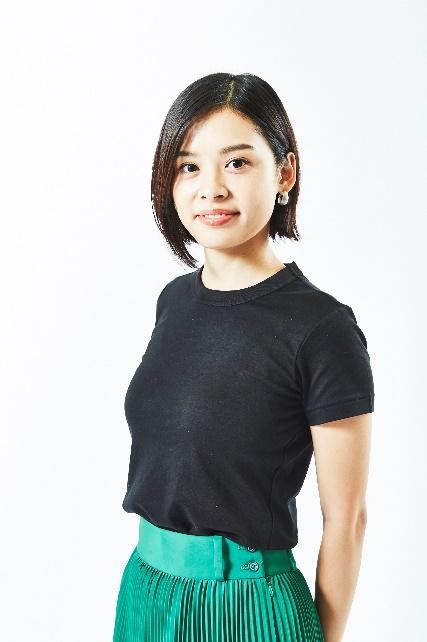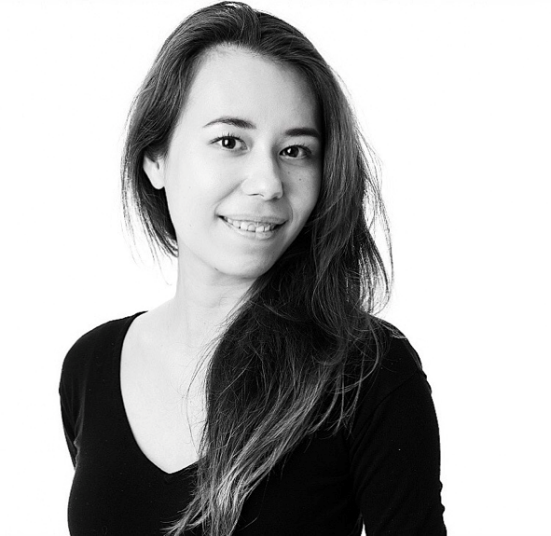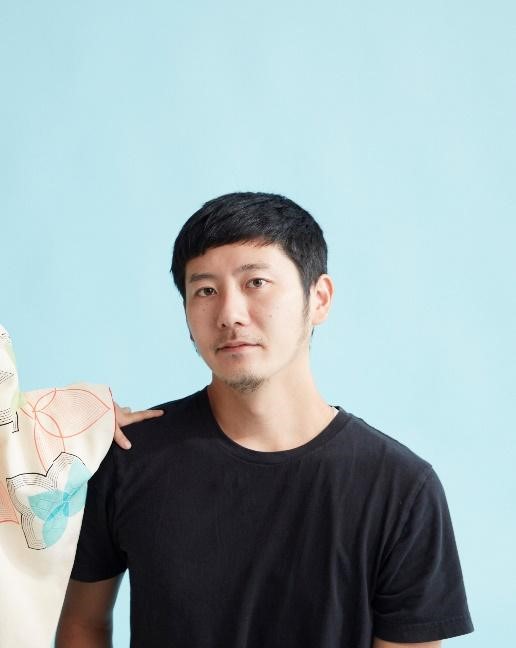In conjunction with this year’s WARC Awards for Asian Strategy, this series aims to showcase perspectives from young strategists across Asia, highlighting their take on strategy as a marketing discipline and career path. This time, we chat with Japan’s emerging bright minds.
Japan has long held a reputation for being a leader in design, innovation and technology. But the outlook for the country is muted, with the fight against COVID-19 still ongoing, and the Summer Olympics and Paralympics expected to only deliver a marginal boost to the economy.
Nevertheless, that hasn’t stopped the market’s young strategists from powering on with their priorities clear. Here, the focus isn’t so much on the frontiers of new technologies but the quest to better understand the mechanics of culture; a return to the foundations of strategic thinking and its mission of decoding the human condition.

Name: Yuri Kameyama
Title: Insight Strategist at 65db Tokyo
Company: TBWA\HAKUHODO
Age: 26
At university, I specialised in accounting for my bachelor’s degree, which gave me an oversight of the “bigger picture” of how business works, the potential challenges it faces and the opportunities it can pursue to find growth.
How did you find your way into strategy work?
My ambition has always been to have a positive impact on society and I believe brands have a role to play. Therefore, for me, being able to provide direction and strategy for brands made more sense than accounting as it allowed me to appreciate and understand the impact marketing has in a business context.
As a strategist, how do you spend your time at work?
Working as a strategist at an agency, I spend a lot of time researching, exploring, reading, analysing and digging around to identify opportunities that make sense of cultural shifts and various market forces impacting our clients’ businesses.
The role not only involves working on the client brief but also exploring and elaborating on potential opportunities that may not be completely obvious at first.
Which is why it’s always important to be curious, to be interested in the cultural shifts and always to dig a little deeper and explore the “why” driving change.
Another part of my role is the social listening aspect. I love this area – social media has the most spontaneous and significant data that is fresh and raw. But the “voices” on social media don’t simply tell us what we want to know, so our role is to quantify or qualify the data, translating these points into meaningful insights and opportunities for our clients.
The “decoding” and “deciphering” take up a lot of thinking and work for me but it’s so interesting and insightful.
How do you personally define the discipline of marketing strategy?
The marketing strategy is a simple but well-thought-through plan, which guides and motivates everyone to reach a marketing goal successfully.
When the brand team is aligned on a clear and meaningful strategy, I believe the results are far more effective.
What’s on your wish list in terms of strategic thinking/work? What do you hope you had more time or approval to pursue for clients?
In the near future, I wish to make more sound decisions “with” the clients instead of “for” the clients.
I also hope the partnership between the agency and client becomes stronger and the agency is seen as an equal business partner, as opposed to “proposing and giving feedback”.
Where do you see yourself working in 5-10 years?
It does not really matter where I go. What’s important to me is that I continue to work in an environment that allows me the freedom to create and grow a brand.
Going back to my ambition, I see myself working on a brand with a holistic business point of view.
Where do you see strategy going in the next 10-15 years?
Living in a world full of uncertainties, strategy should continue to be something powerful and disruptive while guiding a pervasive sustainable approach at the core. Brands need to be adaptive and flexible, with aspirations to be at the forefront of culture more than ever. Because of this, I expect brands to be more open towards “risk”, leveraging uncertainties to create significant impact.

Name: Sophianna Bishop
Title: Associate Planning Director
Company: Geometry Ogilvy Japan
Age: 30
To be honest, it wasn’t something I wanted to pursue at the start of my career. I was passionate about design and starting off as a designer at a boutique agency in Miami, Florida. But because of my curious nature, my role gradually evolved into becoming responsible for social media marketing, PR, event production and client management.
How did you find your way into strategy work?
By the time I was back in Tokyo, I was curious about business development and switched my career path from creative to account management.
After years of managing numerous clients from various categories, I caught myself wanting a new challenge and strategy seemed to be a right fit at the time. As a suit, I got to work with all sorts of teams and realised strategy was always at the heart of every project. Strategy was the one that held the key to truly stimulate the team in creating something special. Since that epiphany, the rest is history.
As a strategist, how do you spend your time at work?
Connecting the dots and testing through simulation – if I’m not in a meeting or creating a deck, I spend a lot of time reading to collect as much data points as possible. With newly acquired data, I then incorporate them into the ever-evolving brand narratives through simulation. This way, I can see where the brand is positioned and perceived by various types of consumers in real time.
One method I use to collect as many data points as possible in a pre-curated world: I created 8 Twitter accounts, 5 Instagram accounts and 3 TikTok accounts with different personas. Like method acting, when I’m on each account, I will embody each account’s way of thinking to understand what creates emotional resonance, what creates disconnect and what type of communication is valued.
By building knowledge and understanding different perspectives, as strategists we can connect the dots and see the big picture for the first time, and bring value to our team and our clients.
How do you personally define the discipline of marketing strategy?
Marketing strategy is all about storytelling – crafting a narrative that stimulates our creative team, enchants our clients and, most importantly, empowers our consumers.
I believe stories are more powerful than standalone data points or insights. Stories can bring out a wide range of emotions and perspectives that inspires all of us to reach out and connect not only with brands but with each other.
Of course, uncovering the core insight and understanding barriers are vital when developing strategy but they need to support the overall story you are trying to convey.
Where do you see yourself working in 5-10 years?
I’d like to challenge myself to make a behavioral impact on society to switch from plastic recycling to biodegradables. Topics surrounding sustainability are picked up by the media but what does “sustainability” even mean anymore? The greenwashing in recent years has polluted the definition of the word.
Brands are more open to investing in sustainability but many are satisfied by simply leveraging buzzwords such as “eco-friendly”, “recycled plastic“ or “ocean plastic” into their communication. This is causing confusion among consumers.
The fact is, there are 3 types of recycling: 1) Material recycling, 2) Chemical recycling, 3) Thermal recycling. All 3 types of recycling emit dangerous levels of CO2 and are only a temporary solution for a sustainable world. Recycling should be the last option in the state of environmental emergency we are currently facing.
But it’s never too late to reprogram the definition of sustainability by providing accessible plant-based solutions, build knowledge on the misconception of recycling and empowering consumers with positive solutions.
Where do you see strategy going in the next 10-15 years?
I like to think that neurostrategy/neuromarketing will be a lot more prevalent in the next 10-15 years. It’s a more effective way in understanding what drives decision-making and triggers emotional systems, and how it filters what we value in real time so that we can tailor the story we want to tell in a more impactful way.
Humans process emotions faster than they process facts but when we develop strategy, it tends to become a linear process. But by implementing a neuro-strategic approach and understanding how the brain works, we can better understand psychological situations and emotions in the decision-making process at a deeper human level. I’m really excited to see campaigns in the near future derived from neurostrategy!

Name: Tsukuru Hishinuma
Title: Integrated Marketing Planner
Company: Dentsu Tokyo
Age: 35
How did you find your way into strategy work?
My career began as a production producer, then an account executive, and finally into strategy work. As a producer, I gained expertise in producing output that touches consumers’ hearts through communication, and as an account executive, I developed a bird's eye view of clients and projects. Based on these experiences and perspectives, I try to build strategies that are realistic for both clients and consumers.
As a strategist, how do you spend your time at work?
I have a time to input data, a time to digest it and a time to be away from it. After being away from the data, I build a strategy hypothesis, relying on my flash of inspiration. At the same time, I also fantasise about how to attack the problem, moving my thoughts back and forth to create a stronger strategy.
Although I have been working remotely for more than a year and a half, I try to get out of the house as much as possible and get stimulated so that I don't lose my sense of the world and human connection.
How do you personally define the discipline of marketing strategy?
To find a place for products, services and brands in the world.
What’s on your wish list in terms of strategic thinking/work?
I hope the world will soon be back to normal and we can enjoy meeting and eating with friends without any worries. Those human-like activities will give reality to my strategic planning.
Where do you see yourself working in 5-10 years?
With the times changing so drastically, I believe that it is not where I am but what I do. I think it is important to always take on challenges, to find the right answer (or something like that) in a world where there is no right answer, and to develop the antennae, imagination and creativity to do so.
Where do you see strategy going in the next 10-15 years?
In a world of diversity, I think it will become even more important to build a solid narrative as a brand and make people empathise with it, rather than just competing with competitors or having superior specifications. And I would like to believe that this is the part that only human beings can create, which AI cannot reach.
The WARC Awards for Asian Strategy is now closed for entries and the judging phase has now commenced. Do stay tuned as the shortlisted papers will be announced on 15 September 2021.

